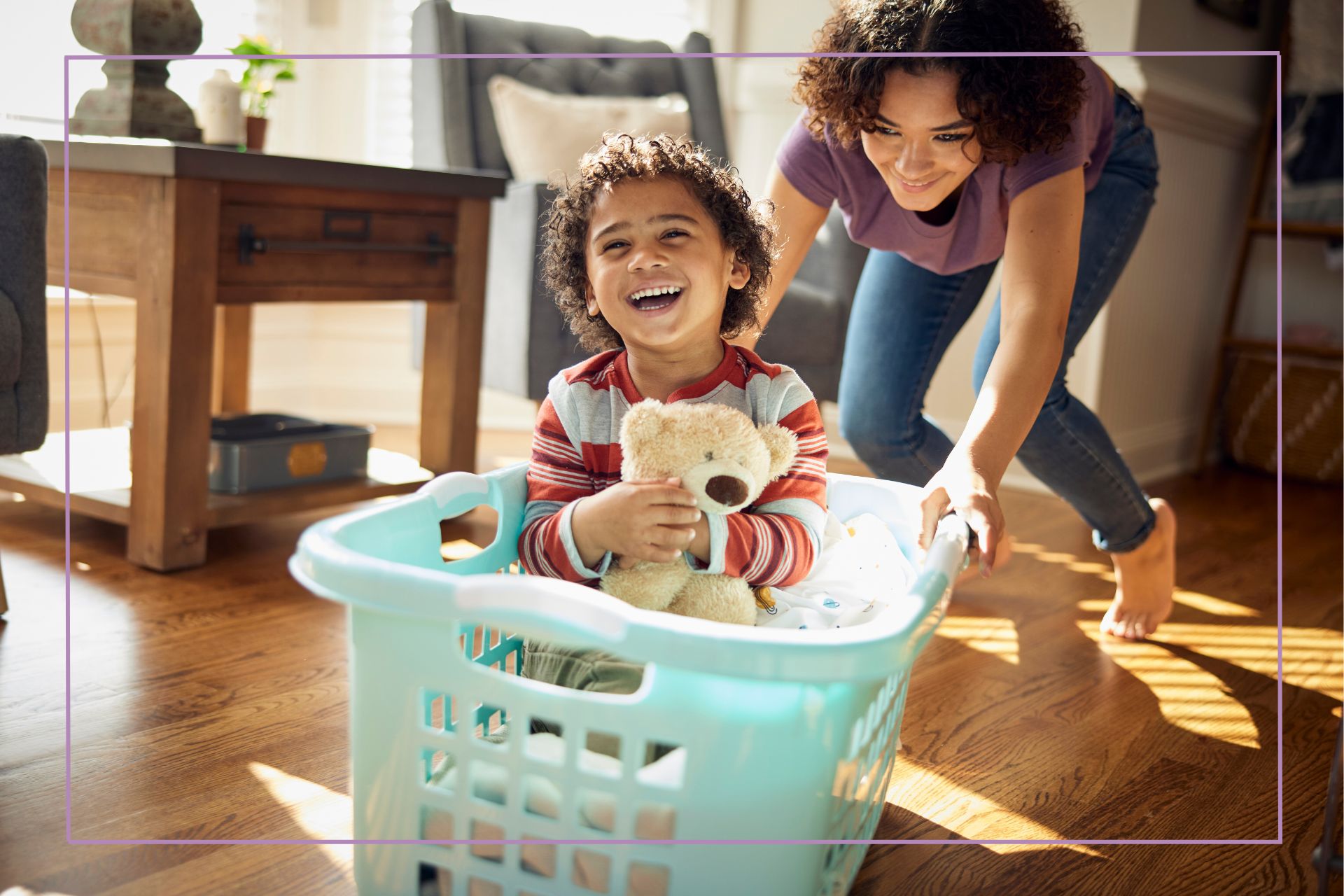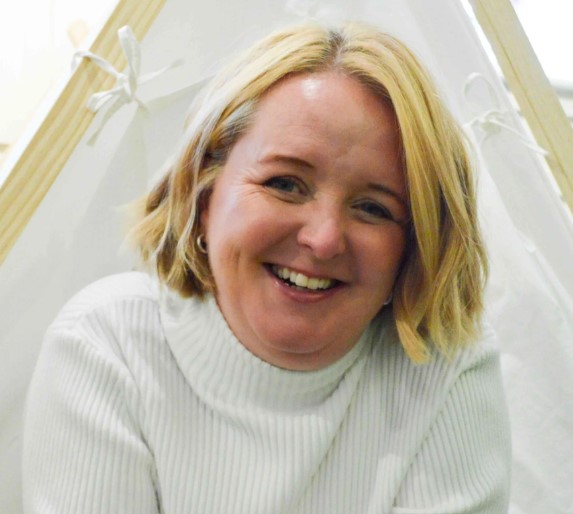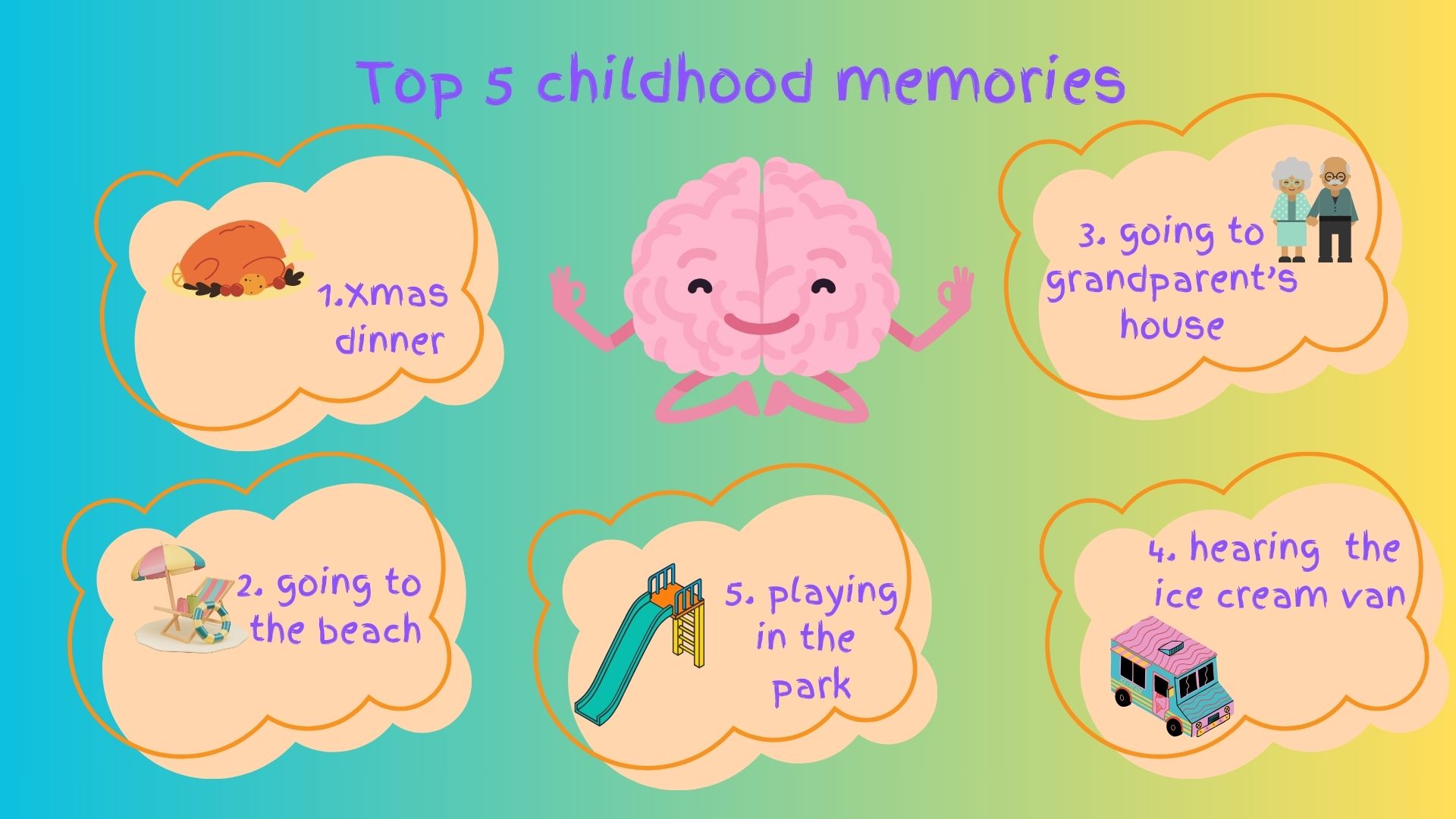Can childhood memories shape who we are? Plus, what are core memories and how to make them
Will the memories you make with your children stay with them forever?

Parenting advice, hot topics, best buys and family finance tips delivered straight to your inbox.
You are now subscribed
Your newsletter sign-up was successful
Childhood memories are vast and varied, and as parents, we have unique opportunities to help our children create happy and positive memories with us, which can help impact their development into teenagers and adults... The tricky thing is parents can never quite tell what will be a core memory.
Creating play dough with your little one, making your toddler giggle so hard they fall over or entertaining your kids on a rainy afternoon - all these events have the capacity to become memories that stay with them forever. Dr Amanda Gummer, neuro-psychologist and founder of The Good Play Guide, says, " Memory building is so important for children’s development. A happy and healthy childhood rich with memories is a great foundation for children as they enter adolescence and beyond."
Family Editor at Goodto.com Stephanie Lowe tells us; "I am obsessed with making core memories for my son, I really struggle with the fact that what sticks it totally out of my control. I'm also trying to not 'throw money at the problem' and not just spend money to make memories, focusing on the 'small joys' instead... it's harder than you think."
Editor's note
It's definitely worth noting that childhood memories don't have to cost money; building a den together on a wet day, laughing through a movie together under a blanket on the sofa, doing a puzzle and problem solving together all create memories.
Whatever you want to call them - core memories or childhood memories - studies show that positive memories of our childhood help us form neural connections that can improve our mental health in later life and even our physical health. Most importantly, though, they help us (as per the Office of National Statistics research build relationships and skills that allow us to lead happier, more resilient lives. We ask the experts how positive childhood memories can shape us and share some personal memories from friends and colleagues.

Amanda has a PhD in Neuropsychology, the Postgraduate Certificate in Higher Education and over 20 years’ experience working with children and families.
Childhood memories
What are core memories and why are they so important?
If you've watched Disney Pixar's animated movie Inside Out (and Inside Out 2, which introduces a new emotion - anxiety), you'll no doubt be familiar with the term 'core memory'. Core memories are, according to the movie, memories of around five events that can shape the development of an individual to such an extent that they can alter the outcome of that person's life.
The idea is so persuasive that it has even spawned a TikTok trend, with users riffing on their own 'core memories' in clips. However, you may be surprised to learn that core memory is, in fact, not a legitimate psychological term, and there is no evidence to suggest that we only have five or so life-changing memories that can shape the course of our lives.
Instead, psychologists refer to the concepts of emotional memories, long-term memories or explicit memories. These are experiences and feelings that we have stored in our long-term memory bank, which, incidentally, can hold a lot more than five memories!
Parenting advice, hot topics, best buys and family finance tips delivered straight to your inbox.
Experts think that, while these memories don't drive our personality, they can help or hinder us in how we identify ourselves, build relationships with others, solve problems, and cope with stress. That's why building positive 'core memories' can help our children develop, whether cognitive, social or emotional.
Dr Amanda Gummer agrees that emotional memories can support children's development as they grow up. " Children that recall supportive times, comfort and happy experiences can be more likely to navigate challenges with strength and resilience and tackle setbacks as they develop through into adulthood."
"Early years memories can contribute brilliantly as a base for growing healthy relationships," Dr Gummer says. "Strong emotional bonds a child has with parents or caregivers contribute to the development of positive attachments, and positive memories can help with expression and empathy. Happy experiences as a child, often found through play, can help children build self-confidence and self-identity."
What are the most common childhood memories?
There are lots of surveys and studies into childhood memories, including many that look specifically at what type of memories tend to stay with us, even years later.
For example, a 2016 survey by Netmums revealed the top 50 most common childhood memories in Britain, which included family holidays, hide and seek, collecting shells on the beach, and watching Top of the Pops. The survey also found that most of the memories were related to the summer season and the beach, and that parents today worry their kids don't have the same kind of memories due to technology and lack of time.

A survey by Heathrow in 2019 asked 2,000 adults to list their favourite childhood memories. Researchers came up with a top list of 50 popular childhood memories. Heart-warmingly, family memories took the top three spots, with Christmas dinner in first place, closely followed by going to the beach and visiting grandparents.
"Memory is a tricky and unreliable thing, but those earliest recollections from our childhood can also be the strongest and most vivid," said a spokesperson for Heathrow, who commissioned the research.
Here are the top 10 memories adults were most likely to recall from childhood:
- Christmas dinner
- Going to the beach
- Going to your grandparent's house
- Hearing the ice-cream van music
- Playing in the park
- Getting pocket money
- Buying penny sweets from the village shop
- Learning to ride a bike
- Playing playground games
- Getting a pet
I remember rolling down a hill at a local park, just rolling over and over again, with the smell of the grass, sunshine, and laughter. Bliss!
Fran
So, how far back do these memories go? A 2015 survey by Psychology Today asked readers to share their first memory. The average age of the earliest memory was 3.5 years old, contradicting research that said most adults could only remember as far back as around 6 years old.
According to the authors, early childhood memories often involve emotional events, both positive (e.g. holidays, playing) and negative (e.g. injuries). Their emotionality and coherence help make them memorable. However, they also point out that the types of early experiences we remember into adulthood reflect what matters to us and contribute to our identity and worldview. So, we essentially choose which memories to hold onto.
Can posiitve childhood memories help shape kids' development?
Absolutely, according to Dr Gummer. Recent research into positive childhood memories shows that they play a crucial role in shaping a child's future development.
Dr Gummer cites a 2023 study by Carvahlo et al, "which suggests that there is a positive relationship between early memories of feeling safe and warm, and emotional regulation." Another study from Marta‑Simões and Ferreira in 2020 "suggests that early memories of feeling warmth and safety with peers led to feelings of social safety and higher self-compassion. Both of these points are claimed to be associated with body appreciation. Positive childhood memories that promote safety and warmth protect against self-harming behaviours and negative body image in women."
Childhood memory quotes
"Childhood is like being drunk. Everyone remembers what you did, except you." - Jarod Kintz
“Kids don’t remember what you try to teach them. They remember what you are.”- Jim Henson
“One of the luckiest things that can happen to you in life is, I think, to have a happy childhood.”- Agatha Christie
“In the happiest of our childhood memories, our parents were happy, too.” - Robert Breault
“Don’t you wish you could take a single childhood memory and blow it up into a bubble and live inside it forever?” - Sarah Addison Allen
"The memories of childhood are like clear candles in an acre of night, illuminating fixed scenes from surrounding darkness.” - Carson McCullers
"Childhood is the best of all the seasons of life, and the longer it lasts with happy memories, the stronger the emotional stability in adulthood." -Venugopal Acharya
"What is it about childhood that never lets you go, even when you're so wrecked it’s hard to believe you ever were a child?" - Mitch Albom
“Play is often talked about as if it were a relief from serious learning. But for children play is serious learning. Play is really the work of childhood.” - Fred Rogers
“Nothing is more memorable than a smell. One scent can be unexpected, momentary and fleeting, yet conjure up a childhood summer beside a lake in the mountains.” - Diane Ackerman
"Happy, happy Christmas, that can win us back to the delusions of our childhood days, recall to the old man the pleasures of his youth, and transport the traveller back to his own fireside and quiet home!” - Charles Dickens
I remember going to see E.T. at the cinema for the first time. It was so exciting. The smell of the popcorn, the hush as the trailers started, the bag of Pick 'n' Mix I had. I'll never forget it.
Matt
“Memories of childhood were the dreams that stayed with you after you woke.” - Julian Barnes
“In the life of everyone there is a limited number of experiences which are not written upon the memory, but stamped there with a die; and in the long years after, they can be called up in detail, and every emotion that was stirred by them can be lived through anew; these are the tragedies of life.” - James Weldon Johnson
“Most people think their childhood was happy till they sit down in a room with abstract art on the wall in front of them a clipboard and behind that clipboard a person with a blank expression.” - Sophia Hembeck,
“There is no scent of nostalgia like a fragrance drawn from the garden of childhood memories.” - Aloo Denish
How can parents help to create posiitve memories?
Dr Gummer suggests the following tips for creating positive memories that will stay with your child as they grow and develop:
- Prioritise family time and establish traditions around special seasonal occasions, such as birthdays and holidays.
- Organise simple family activities, such as baking, playing puzzles, and having a regular bedtime story. These help to build bonds and a strong foundation for memories to be made.
- Family game nights, special mealtime rituals and getting the kids to come up with new traditions are all fun ways to make good memories.
- Celebrate little wins, such as swimming or scouting badges - the consistent celebration of a win will support their memory and positive reflection.
"Toddlers and preschoolers will enjoy simple hands-on playtime such as making a fort out of a bedsheet, or bubble blowing in the garden and for older children it might be enjoying outdoor adventures such as family bike rides or picnics or joint crafting projects," says Dr Gummer. "Making memories needn’t come at a cost - just being present, listening actively and celebrating little wins in simple ways will strengthen bonds and memories."
For more on parenting and activities to do with your kids check out our How to make paper mache or making your own calm down jar or learn How to tie dye t-shirts and even How to make coasters from scrabble tiles.
Joanne Lewsley is mum to a tween, and freelance copywriter and editor who creates parenting, health and lifestyle content for evidence-based websites, including BabyCentre, Live Science, Medical News Today and more.
